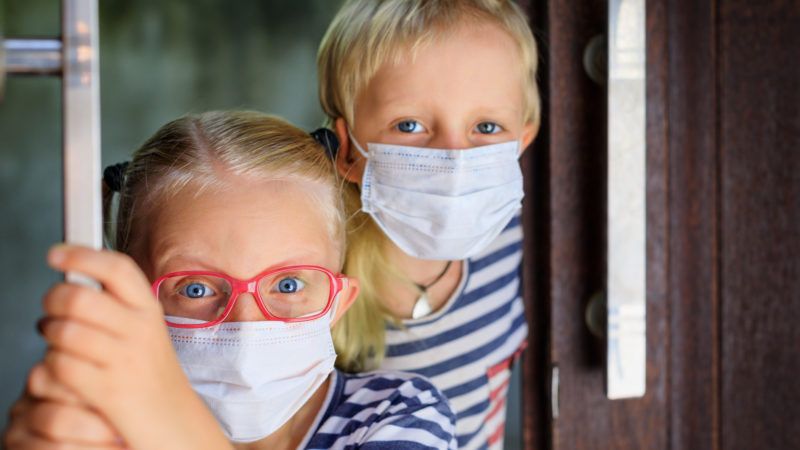Tennessee Officials Wanted To Make Monthly 'Well-Being' Inspections of Every Child in the State
The crazy plan was called off after parents sensibly complained.

A week ago, Tennessee's Department of Education announced it was going to start conducting monthly "child well-being" assessments of every single kid under age 18 in the state. These could be by phone, email, or a knock on the door. On home visits, the so-called "well-being liaison" would be allowed to interview the children privately.
Did the state set any standards for what sort of person would be given kind of access and responsibility? Well, the liaisons had to be at least 20 years old, and they had to pass a background check.
That's it.
The parental uproar that ensued, I'm happy to report, was immediate and deafening. By Friday, just three days after the initiative was announced, it had been withdrawn by Gov. Bill Lee (R) and the state's education commissioner, Dr. Penny Schwinn.
"Although well-intentioned, we have missed the mark on communication and providing clarity around or role in supporting at-risk students during an unprecedented time," Schwinn wrote in a letter to the state's General Assembly. "Governor Lee has asked our department to remove this guidance and go back to the drawing board so we get it right. I want to assure you that we recognize the concerns that you and your constituents share."
The concern seems to be pretty basic: How dare you come to my house and investigate me as if I'm a suspected child abuser?
"We were encouraging people to call the governor's office and their elected officials," Dan Beasley, staff attorney at the Home School Legal Defense Association (HSLDA), tells Reason. "Our data show that about 1,600 people responded directly to our action." That seems to have done the trick.
The state's initiative was created by the Child Wellbeing Task Force, a 38-member committee concerned that kids might be suffering behind closed doors, out of sight from teachers who might have noticed their distress and reported it to child protective services under different circumstances.
I can understand the worry: No one wants kids to be hurt or starved behind closed doors. The problem is that the state should not go around visiting people's homes just because someone, somewhere, might be in trouble. As the HSLDA wrote in a note to its constituents, "such a policy, if adopted, would threaten the right of parents to be presumed to act in their own child's best interests."
Even Schwinn seemed to understand that. "I acknowledge the vast difference between providing support for vulnerable children as opposed to any potential overreach into what parents determine is best for their children," wrote the commissioner.
Tennessee receives nearly 140,000 child abuse hotline calls a year, according to the last federal Child Maltreatment report.
"You might think that Tennessee authorities have enough work to do to keep up with the calls that claim a child faces an actual danger at home," Diane Redleaf, co-chair of United Family Advocates and Let Grow's legal consultant, tells Reason.
But the bigger problem, she says, is that "surveillance isn't the support families need." While the idea was to make sure families weren't lacking food, shelter, or healthcare, a home visit from the government can too easily heighten tensions, mistake poverty for neglect, and possibly separate children from their parents. Even cases that are ultimately dismissed can be traumatic.
Now, as Tennessee reflects upon its overreach, perhaps the Department of Children and Families in Massachusetts could do the same. As Robby Soave reported on Monday, the DCF has the power to remove children who are being abused—as it should—but it "considers distance-learning no-shows to be possible abuse cases."
That's right: a kid who misses Zoom lessons could earn his parents a visit from child services. One mom even got a call from DCF because an adult male had allegedly exposed himself in front of her daughter's virtual class—except the "adult male" was actually the girl's autistic six-year-old brother. Rather than apologizing for the mistake and dropping the case, the school district notified the police anyway, The Boston Globe reported.
That's why you don't want government evaluators knocking on every door just because they can. The chances for overreaction and obtuseness are just too great.


Show Comments (68)